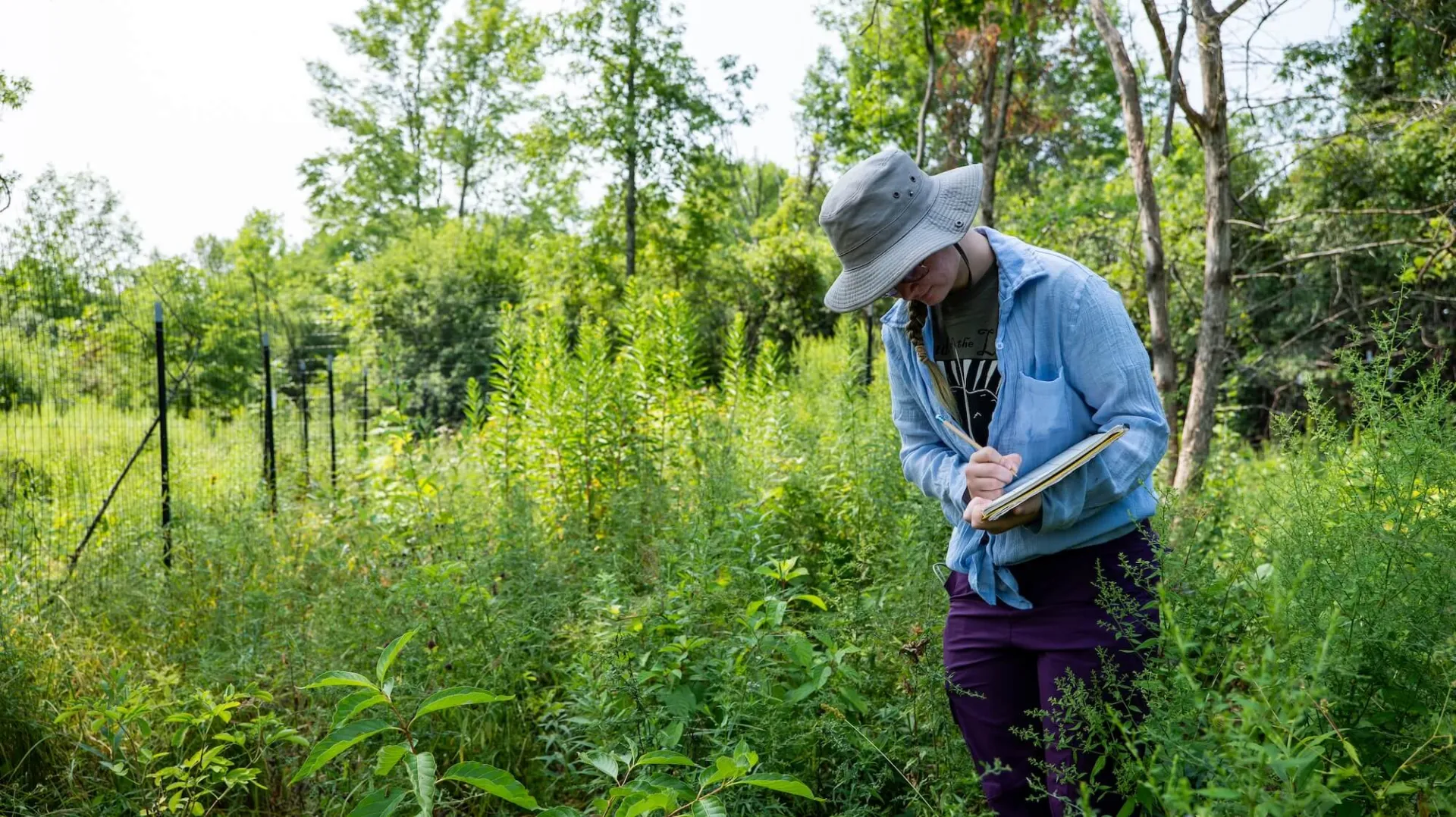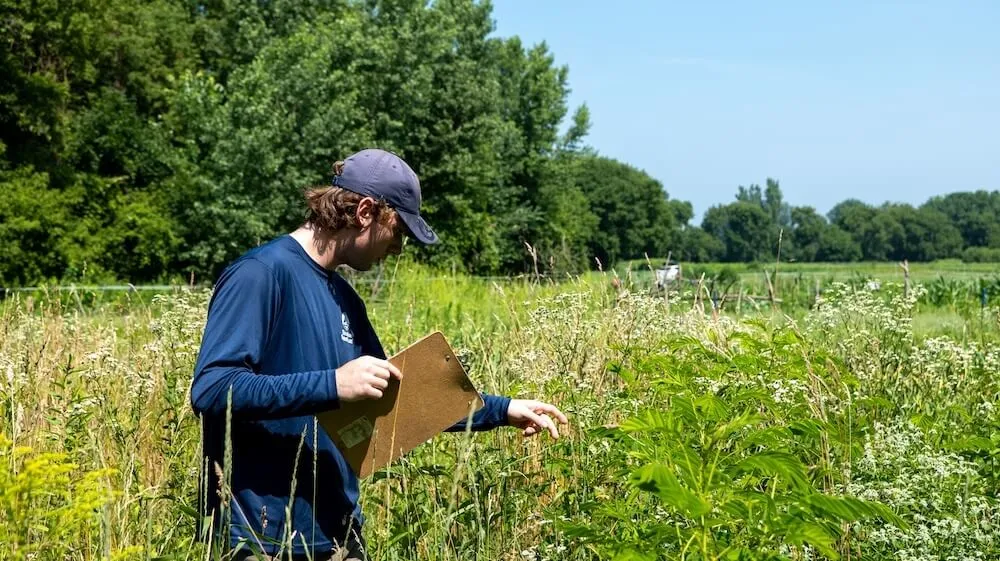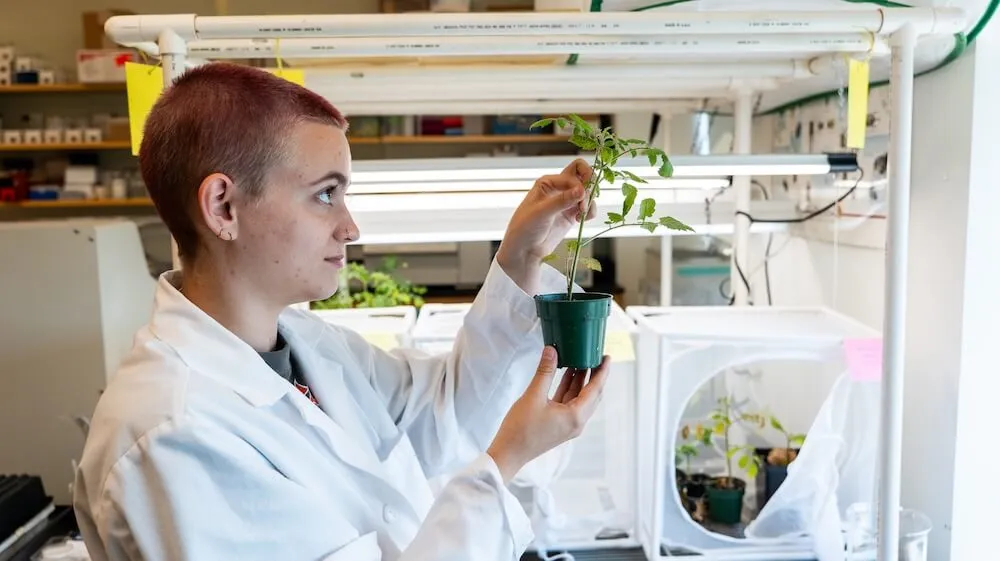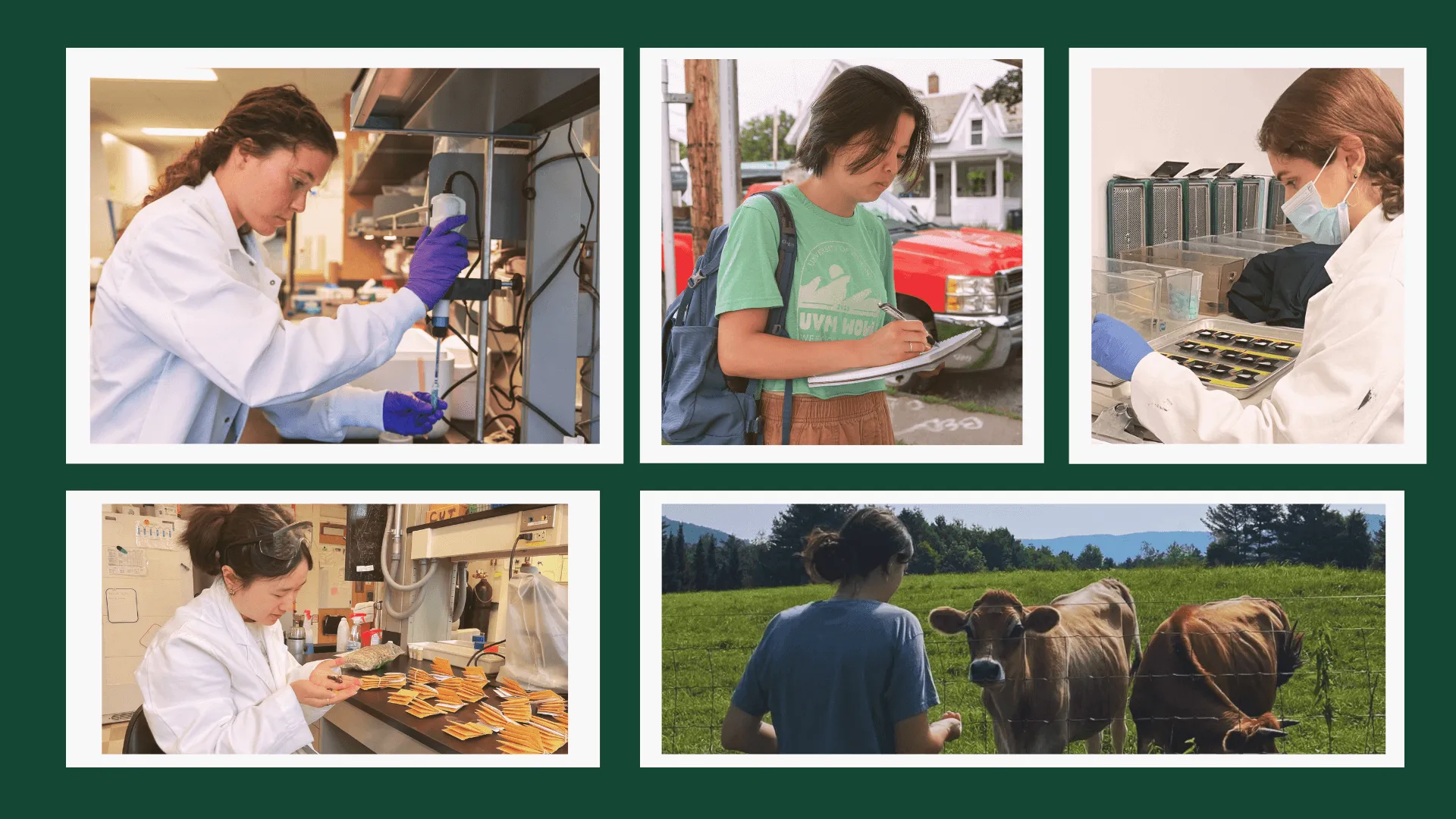Amid buzzing pollinators and lush riparian buffers, Ruth Stumpfoll spent the summer advancing ecological preservation and land stewardship through an internship with Mycoevolve, an ecological resilience service.
Ruth’s work this summer focused on restoring Riparian Forested Buffers (RFBs), which are vegetated areas near waterways that help prevent erosion and agricultural pollution. Through a grant from the Food Systems Research Institute, the junior Plant Biology major conducted a research project studying plant succession in the second year RFBs at Shelburne Farms and compared plant diversity between restored plots that were either inoculated or left uninoculated with endemic mycorrhizae, beneficial fungi that form symbiotic relationships with plant roots. This research will eventually help to restore native plant communities, understand the phosphorus uptake to reduce nutrient runoff and improve pollinator habitats. Last year, Ruth volunteered in preparing these plots for planting and has been able to have a multi-year and hands-on research experience which included learning to follow lab and field protocols and processing many different types of data.
Additionally, this project has the larger goal of rematriation, reconnecting this land with the Indigenous Abenaki. All of the restoration plantings have Abenaki utility and the sustainable harvesting of plants in these plots is an important step in phosphorous mitigation.
As farmers and stakeholders visited the site, Ruth has also practiced public engagement skills by sharing findings. These science communication skills are essential for early-career scientists to effectively share their research with the public.
About the FSRI:
The Food Systems Research Institute (FSRI) at the University of Vermont (UVM) funds people and planet-centered collaborative research that connects disciplines and communities to answer complex food systems questions.
The FSRI funds undergraduates to do summer research with UVM researchers on critical food systems topics.



